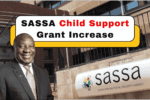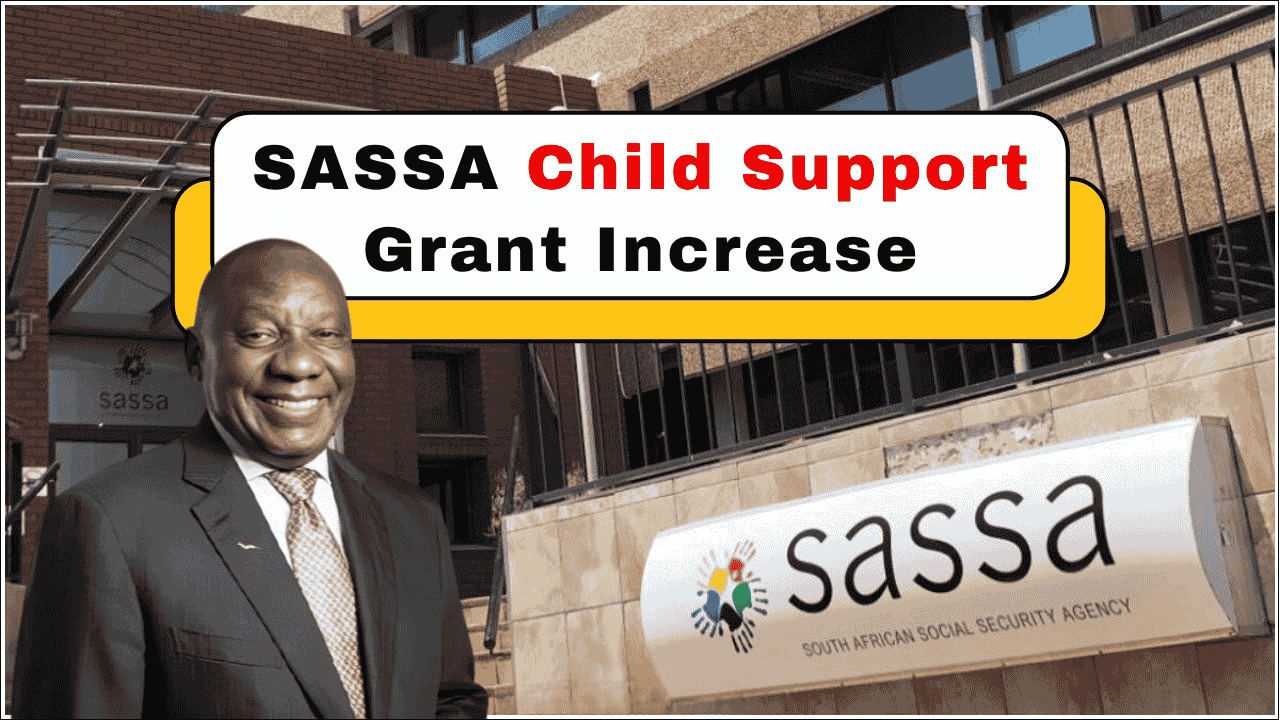
June 2025 has marked a watershed moment in South Africa’s social security administration, as the South African Social Security Agency (SASSA) initiated its most comprehensive compliance enforcement operation in recent history. This decisive action has resulted in payment suspensions affecting over 210,000 grant recipients nationwide, fundamentally transforming the landscape of social grant distribution and monitoring processes across the country.
The extensive nature of these payment rejections represents a paradigm shift in how SASSA approaches grant administration, moving from a predominantly trust-based system to one that relies heavily on technological verification and cross-departmental data integration. This transformation, while aimed at eliminating fraud and ensuring grants reach only legitimate beneficiaries, has created unprecedented challenges for vulnerable communities who depend on these payments for basic survival.
The timing and magnitude of these rejections have sent ripple effects throughout South African society, particularly affecting low-income households, rural communities, and elderly beneficiaries who face additional barriers in navigating the new compliance requirements. Understanding the reasons behind these rejections and the pathways to resolution has become crucial for millions of South Africans whose livelihoods depend on social grant assistance.
Unprecedented Scale of Payment Suspensions
The June 2025 payment rejections represent the largest single-month enforcement action in SASSA’s operational history, affecting approximately 5% of the agency’s total beneficiary base. This massive compliance operation has touched every category of social assistance, from the Social Relief of Distress (SRD) R370 grant to Old Age Pensions, Disability Grants, and Child Support Grants.
Breakdown of Affected Grant Categories
| Grant Type | Affected Recipients | Primary Rejection Reasons | Impact Level |
|---|---|---|---|
| SRD R370 Grant | 85,000 beneficiaries | Income threshold violations, undeclared earnings | High |
| Old Age Pension | 45,000 beneficiaries | Identity verification failures, deceased records | Critical |
| Disability Grant | 35,000 beneficiaries | Medical status changes, income discrepancies | Severe |
| Child Support Grant | 30,000 beneficiaries | Caregiver status changes, income violations | High |
| Foster Care Grant | 15,000 beneficiaries | Legal guardianship issues, documentation gaps | Moderate |
The widespread nature of these rejections has created a crisis of confidence among beneficiaries, many of whom discovered their suspension only when attempting to access their monthly payments. This discovery method has intensified the immediate hardship experienced by affected families, leaving them without advance warning or preparation time to seek alternative support.
For comprehensive information about SASSA services and grant programs, visit the official website: https://www.sassa.gov.za
Core Factors Behind Mass Payment Rejections
SASSA’s decision to reject hundreds of thousands of payments stems from multiple verification failures and compliance violations discovered through enhanced monitoring systems. The agency has implemented sophisticated cross-referencing technology that compares beneficiary information across various government databases, revealing discrepancies that previously remained undetected.
Primary Rejection Categories and Causes
| Rejection Reason | Description | Affected Percentage | Resolution Complexity |
|---|---|---|---|
| Identity Verification Failures | Home Affairs database mismatches | 35% of rejections | Moderate |
| Undisclosed Income Sources | Bank transactions revealing unreported earnings | 28% of rejections | High |
| Self-Exclusion Triggers | Income exceeding eligibility thresholds | 20% of rejections | Low |
| Failed Means Testing | Improved financial circumstances not reported | 12% of rejections | Moderate |
| Documentation Inconsistencies | Outdated or mismatched personal information | 5% of rejections | Low |
Identity Verification Complications
The most prevalent cause of payment rejections involves identity verification failures, where beneficiary information doesn’t align with records maintained by the Department of Home Affairs. These discrepancies often arise from database inconsistencies, including unverified entries, deceased person records that haven’t been properly updated, or variations in name spellings across different government systems.
The Department of Home Affairs database serves as the primary verification source, and any inconsistencies automatically trigger payment suspensions. This system, while designed to prevent identity fraud, has inadvertently affected legitimate beneficiaries who have minor documentation issues or whose records contain administrative errors accumulated over years of data entry.
For identity document services and verification, consult: https://www.dha.gov.za
Undisclosed Income Detection
SASSA’s enhanced partnership with registered credit bureaus and banking institutions has revolutionized income monitoring capabilities. The agency now accesses real-time financial transaction data, enabling detection of previously hidden income sources that beneficiaries may have failed to disclose during application processes or updates.
This technological advancement has identified thousands of cases where beneficiaries receive undeclared employment income, business profits, rental payments, or other forms of financial support that affect their grant eligibility. The system’s sophistication extends to detecting patterns of financial activity that suggest regular income, even when not formally declared to tax authorities.
Advanced Technology Integration and Monitoring Systems
The foundation of SASSA’s mass rejection capability lies in sophisticated technological integration with multiple government departments and financial institutions. This comprehensive data-sharing network enables real-time verification of beneficiary information against various databases, creating an unprecedented level of oversight in social grant administration.
Integrated Verification Systems
| Data Source | Information Accessed | Verification Purpose | Update Frequency |
|---|---|---|---|
| Department of Home Affairs | Identity verification, citizenship status | Prevent identity fraud | Real-time |
| South African Revenue Service | Tax records, formal employment | Income verification | Monthly |
| Unemployment Insurance Fund | Employment history, benefit claims | Duplicate benefit prevention | Weekly |
| Banking Institutions | Account transactions, financial activity | Undisclosed income detection | Daily |
| Credit Bureaus | Financial profiles, debt information | Comprehensive financial assessment | Real-time |
This technological infrastructure enables SASSA to process verification checks for millions of beneficiaries simultaneously, explaining how such a large number of rejections could occur within a single month. However, the system’s sensitivity means that minor discrepancies or outdated information can trigger automatic flags that result in payment suspensions.
For information about government data protection and privacy policies, visit: https://www.gov.za/about-government/government-programmes/protection-personal-information-act
Community Impact and Vulnerable Population Effects
The extensive payment rejections have created severe hardship across South African communities, particularly affecting populations already struggling with high unemployment and poverty rates. With over 55.5% of the population living in poverty and unemployment reaching 32.9% in 2025, social grants often represent the sole income source for millions of households.
Hardship Distribution Across Demographics
| Affected Group | Primary Challenges | Support Needs | Recovery Timeline |
|---|---|---|---|
| Rural Communities | Limited office access, poor internet connectivity | Mobile services, extended deadlines | 2-3 months |
| Elderly Beneficiaries | Technology barriers, mobility limitations | Assisted services, simplified processes | 1-2 months |
| Disabled Recipients | Accessibility challenges, complex verification | Specialized support, accommodation | 2-4 months |
| Urban Poor | Documentation gaps, informal employment | Document assistance, income verification | 1-3 months |
| Child-headed Households | Legal guardianship issues, school disruption | Emergency support, expedited processing | 3-6 months |
The immediate consequences extend beyond financial hardship to include inability to purchase food, pay for transportation to seek employment or resolve grant issues, cover children’s educational expenses, or access essential healthcare services. The psychological impact compounds these material hardships, creating stress and uncertainty about survival strategies for affected families.
Resolution Pathways and Appeal Mechanisms
SASSA has established multiple channels for beneficiaries to address payment rejections, though the process requires prompt action and proper documentation. The agency mandates that affected beneficiaries present themselves at local SASSA offices within 30 days of notification to undergo comprehensive grant reviews.
Appeal Process Options and Requirements
| Appeal Method | Accessibility | Processing Timeline | Success Rate |
|---|---|---|---|
| In-Person Office Visits | Business hours, local offices | 7-14 days | 75% |
| Online Portal Appeals | 24/7 digital access | 14-21 days | 65% |
| Independent Tribunal (ITSAA) | Formal appeal process | 30-60 days | 85% |
| Community Assistance Programs | NGO and social worker support | Variable | 70% |
Required Documentation for Appeal Resolution
Successful appeals require comprehensive documentation that addresses the specific reason for payment rejection. Beneficiaries must compile proof of identity using valid South African ID documents (smart cards preferred over outdated green barcoded versions), current proof of residence, comprehensive banking statements covering the past three months, employment or income documentation if applicable, and any additional verification documents specific to their grant category.
For appeal procedures and forms, access: https://www.gov.za/services/social-grants
Enhanced Compliance Framework and Documentation Standards
SASSA’s new compliance requirements demand proactive engagement from beneficiaries in maintaining accurate information and promptly reporting changes in circumstances. This framework represents a significant shift from previous reactive monitoring to proactive compliance management.
Mandatory Reporting Requirements
| Change Category | Reporting Deadline | Documentation Needed | Consequences of Non-Compliance |
|---|---|---|---|
| Income Changes | Within 30 days | Employment letters, bank statements | Payment suspension |
| Address Updates | Within 30 days | Proof of residence, utility bills | Delivery complications |
| Banking Details | Within 7 days | New account documentation | Payment delays |
| Family Status | Within 30 days | Birth/death certificates, marriage licenses | Eligibility reassessment |
| Medical Condition | Within 60 days | Medical reports, disability assessments | Grant review |
Biometric Verification Requirements
The implementation of mandatory biometric verification for flagged beneficiaries represents a significant technological advancement in grant security. This process requires in-person visits to SASSA offices equipped with biometric scanning technology, creating additional verification barriers that some beneficiaries find challenging to navigate.
Banking System Integration and Payment Modernization
SASSA’s partnership with financial institutions has transformed grant payment mechanisms while creating new requirements for beneficiaries. Banks now automatically report account activities to SASSA, making comprehensive income monitoring possible but also requiring beneficiaries to maintain strict compliance with banking requirements.
Banking Compliance Requirements
| Banking Aspect | Requirement | Compliance Standard | Non-Compliance Risk |
|---|---|---|---|
| Account Ownership | Personal account in beneficiary’s name | 100% compliance required | Immediate suspension |
| Banking Details | Current and accurate information | Updated within 7 days | Payment delays |
| Transaction Monitoring | All income sources disclosed | Ongoing transparency | Automatic detection |
| Account Activity | Regular maintenance and usage | Active account status | Service termination |
The transition from Postbank services to commercial banking has created additional complexity for beneficiaries who must navigate new banking relationships while maintaining compliance with SASSA requirements. This shift requires updating banking details through SASSA’s online portal, a process that proves challenging for beneficiaries with limited digital literacy or internet access.
For banking and financial services information, visit: https://www.resbank.co.za
System Improvements and Future Developments
Recognizing the hardships created by the June 2025 rejections, SASSA has committed to implementing system improvements that balance fraud prevention with beneficiary accessibility. These enhancements aim to maintain system integrity while reducing barriers for legitimate grant recipients.
Planned System Enhancements
| Improvement Area | Timeline | Expected Impact | Beneficiary Benefit |
|---|---|---|---|
| Enhanced Online Platforms | Q3 2025 | Improved user experience | Easier navigation |
| Expanded Biometric Locations | Q4 2025 | Reduced travel requirements | Rural accessibility |
| Improved Communication Systems | Q3 2025 | Proactive notifications | Advance warning |
| Streamlined Appeal Processes | Q4 2025 | Faster resolution times | Reduced hardship duration |
| Community Outreach Programs | Ongoing | Better understanding | Compliance assistance |
Long-term Implications and Systemic Changes
The June 2025 payment rejections signal a fundamental transformation in South Africa’s social security administration, establishing new standards for grant management and fraud prevention. This shift prioritizes system integrity and sustainability while requiring beneficiaries to adapt to more stringent compliance requirements.
For legitimate beneficiaries, success in this new environment demands proactive engagement with SASSA systems, maintenance of accurate documentation, and prompt reporting of circumstance changes. Those facing rejections must act swiftly to appeal decisions and provide required verification, as delays can result in permanent grant termination.
The broader implications extend beyond individual beneficiaries to communities and organizations supporting vulnerable populations. Social workers, community leaders, and civil society organizations play crucial roles in helping beneficiaries navigate new requirements and access necessary support for maintaining grant eligibility.
For comprehensive government services and support information, visit: https://www.gov.za
Conclusion
The June 2025 SASSA payment rejections represent the most significant compliance enforcement action in the agency’s history, fundamentally altering the landscape of social grant administration in South Africa. While these measures aim to eliminate fraud and ensure grants reach only eligible recipients, they have created unprecedented challenges for vulnerable beneficiaries who must now navigate complex verification requirements.
The path forward requires continued collaboration between SASSA, beneficiaries, and support organizations to create systems that effectively balance fraud prevention with accessibility. The ultimate goal remains protecting the integrity of social grants while maintaining their crucial role in supporting South Africa’s most vulnerable populations during these challenging economic times.
Success in this new environment depends on beneficiaries understanding their obligations, maintaining compliance with reporting requirements, and promptly addressing any issues that arise. For those facing rejections, swift action through official appeal channels offers the best opportunity for resolution and payment restoration.
Frequently Asked Questions
How many SASSA beneficiaries were affected by June 2025 payment rejections? Over 210,000 grant beneficiaries faced payment suspensions, representing approximately 5% of all SASSA recipients nationwide.
What is the main reason for payment rejections in June 2025? Identity verification failures and undisclosed income sources are the primary causes, accounting for over 60% of all rejections.
How long do beneficiaries have to appeal rejected payments? Affected beneficiaries must present themselves at local SASSA offices within 30 days of notification to undergo grant reviews and appeals.
Will successful appeals result in retroactive payments? Yes, successfully appealed cases result in retroactive payments covering the suspension period, though processing may take several weeks.







